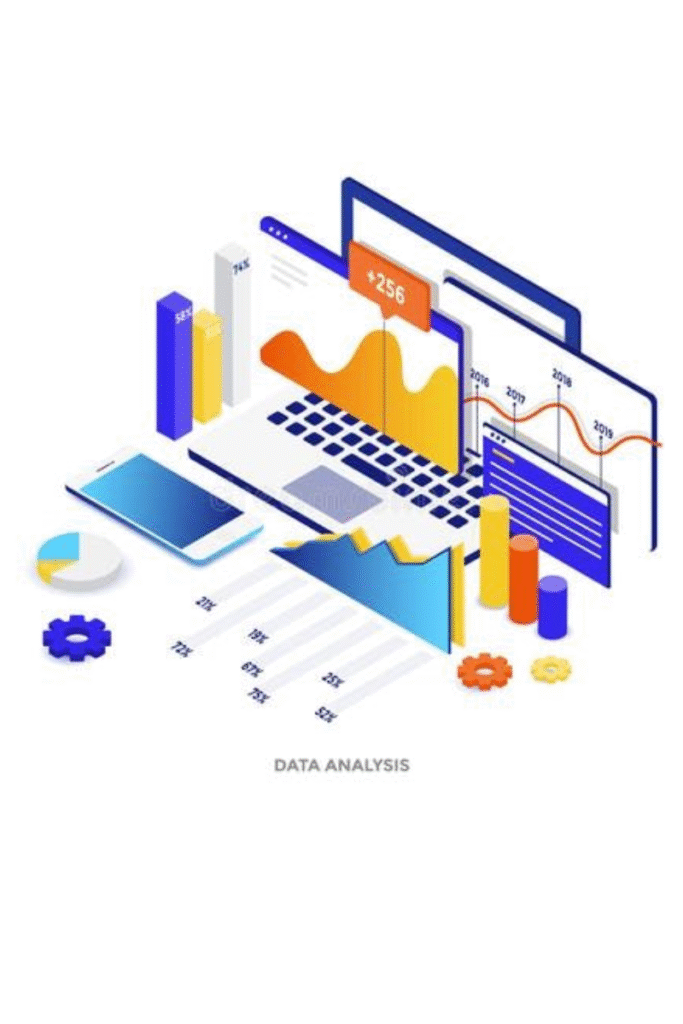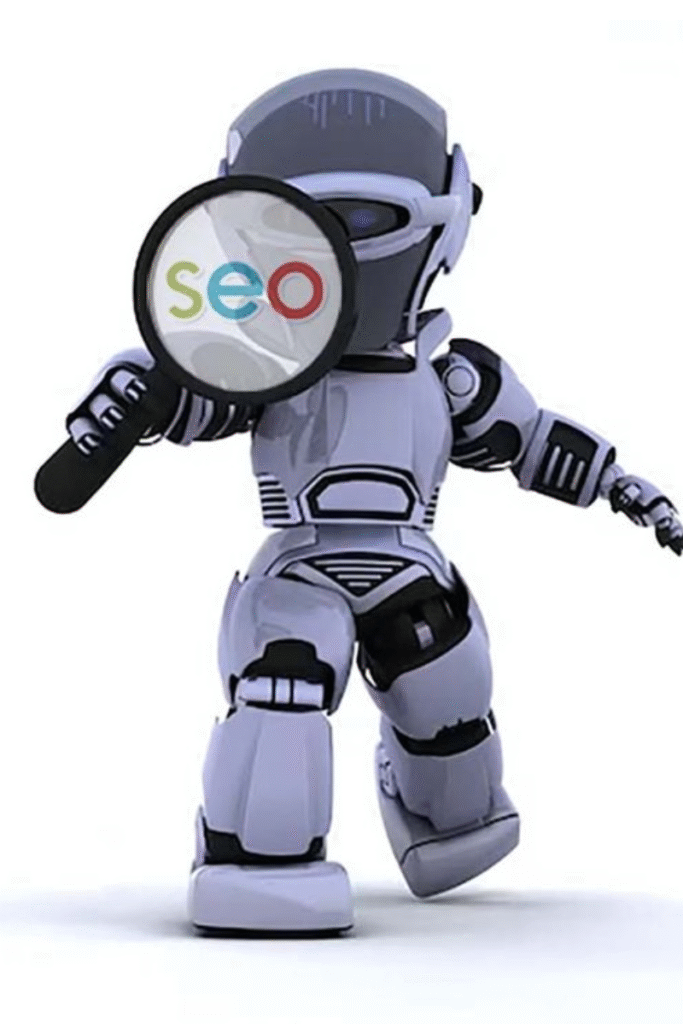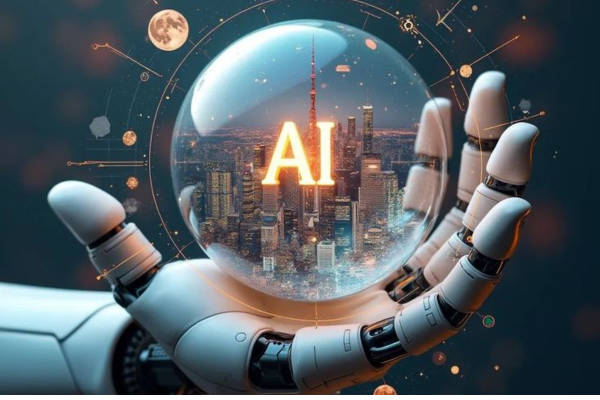Table of Contents
How AI Transforming Digital Marketing in 2025 is not just a trend—it’s a revolution. As artificial intelligence (AI) continues to evolve, marketers are leveraging its power to analyze data faster, automate campaigns, and personalize experiences like never before.
In this blog, we’ll dive deep into how AI is reshaping the digital marketing landscape in 2025—and how you can use these smart innovations to boost your strategy and stay competitive.
Introduction
AI transforming digital marketing in 2025 is no longer a prediction—it’s today’s reality. Artificial intelligence is fundamentally reshaping how brands connect with audiences, analyze data, and deliver personalized experiences. From smart content generation to predictive analytics and real-time customer service, AI is creating marketing strategies that are faster, smarter, and more targeted than ever before.
Digital marketers who embrace AI gain a significant competitive edge. With the ability to automate repetitive tasks, understand user behavior in-depth, and optimize ad performance in real-time, AI is helping businesses scale efficiently while delivering better ROI. In fact, top companies are already leveraging AI-powered tools like chatbots, recommendation engines, and voice search optimization to stay ahead in the digital race.
But how exactly is AI transforming digital marketing in 2025? And which tools and techniques should you start using today to future-proof your business?
In this post, we’ll explore the revolutionary impact of AI on digital marketing, backed by real-world examples and expert insights. Whether you’re a beginner or an experienced marketer, you’ll discover how to make AI work for you.
What is AI in Digital Marketing?
AI in digital marketing refers to using artificial intelligence technologies like machine learning, natural language processing, and data analytics to enhance marketing strategies. It enables marketers to:
- Automate tasks
- Deliver personalized content
- Predict customer behavior
- Optimize campaigns in real-time
AI is transforming digital marketing in ways that were once unimaginable, pushing the boundaries of personalization, automation, and data analysis. Artificial Intelligence is no longer a futuristic concept—it’s now an essential tool that drives smarter, faster, and more targeted marketing strategies across industries. AI-powered platforms are analyzing massive volumes of user behavior data in real-time, helping marketers understand customer preferences, predict future actions, and deliver hyper-personalized experiences at scale.From AI-driven chatbots providing instant, human-like support to predictive analytics tools forecasting customer journeys, AI has reshaped the core of digital marketing. Smart algorithms are now optimizing ad targeting with incredible precision, reducing ad spend while increasing ROI. Content generation tools like ChatGPT and Jasper are helping marketers craft high-quality blogs, product descriptions, and social media posts in minutes. Email marketing platforms are using AI to automate subject line testing, segment audiences intelligently, and send campaigns at the perfect time for maximum engagement. Voice search optimization and AI-based SEO tools like Surfer and Clearscope are ensuring content ranks higher by understanding search intent better than ever. Furthermore, AI is enhancing video marketing by generating captions, summarizing long videos, and even creating personalized video ads. What makes this transformation groundbreaking is the shift from reactive marketing to proactive, insight-driven strategies powered by machine learning. Brands embracing AI are not just improving efficiency—they are delivering experiences that feel tailored, timely, and truly customer-first. As a result, staying competitive in 2025 means leveraging AI tools and insights to connect with audiences more meaningfully, creatively, and profitably. Without a doubt, AI transforming digital marketing is the defining force of this new era.
Smart Content Creation & Personalization
AI tools can now write ad copy, blog posts, email subject lines, and even video scripts. Platforms like Jasper AI and Copy.ai allow marketers to scale content while maintaining quality.
Example: Netflix’s AI recommends content based on viewing habits—a concept now being used in e-commerce to show relevant products.

DoFollow: Jasper AI – AI Content Generator
Predictive Analytics for Smarter Decisions
AI’s predictive capabilities analyze large datasets to forecast trends and behaviors. This allows marketers to:
- Launch targeted campaigns
- Allocate budgets effectively
- Improve ROI
Platforms like Google Analytics 4 now integrate AI to offer predictive insights, helping brands adjust strategies in real-time.

DoFollow : Google Analytics 4
AI-Powered Chatbots for 24/7 Customer Support
AI-driven chatbots have improved drastically in 2025. Tools like Drift and Chatfuel can answer customer questions, handle orders, and even upsell—all without human interaction.
Benefits:
- Instant response times
- Reduced support costs
- Enhanced customer experience

Smarter Advertising with AI Algorithms
Platforms like Google Ads and Facebook Ads now rely heavily on AI to:
- Automatically optimize bids
- Adjust audience targeting
- Generate ad creatives based on performance data
Marketers can achieve better ROI with less manual input, as AI continuously learns which combinations work best for specific goals.

Check out our guide on How to Create Viral Short-Form Videos
AI in SEO and Voice Search
Search engine algorithms are becoming smarter, and so must SEO strategies. AI-powered tools such as Surfer SEO, Frase, and Clearscope help marketers:
- Analyze SERPs and competitors
- Optimize content based on real-time ranking factors
- Understand user intent

Additionally, AI is key in optimizing for voice search, with natural language processing (NLP) helping content rank for conversational queries like “What are the top marketing trends in 2025?”
After completing 5 points about AI Transforming digital marketing now there is more to understand about AI Transforming digital market to boost your ultimate future with AI
In today’s rapidly evolving digital landscape, AI transforming digital marketing has become a defining trend shaping how businesses interact with consumers, create content, and drive sales. The advantages of AI Transforming digital marketing are vast and game-changing. One of the most significant benefits is automation. AI enables marketers to automate repetitive tasks such as email sequences, data analysis, customer segmentation, and ad placement, saving time and reducing human error. With automation, campaigns run more efficiently and can be optimized in real-time based on user behavior and engagement data. Another powerful advantage is personalization. AI algorithms analyze massive datasets from user interactions, browsing history, and social media activity to create highly personalized marketing experiences. This means showing the right message, to the right person, at the right time—dramatically improving click-through rates, conversions, and customer satisfaction. AI also powers chatbots and virtual assistants, which provide 24/7 customer service, answer queries instantly, and guide users through their buyer journey, significantly boosting engagement and lowering bounce rates. Moreover, tools like predictive analytics use AI to forecast trends, customer intent, and potential churn, allowing businesses to make proactive decisions and plan more effective strategies. In content marketing, AI-powered writing tools like ChatGPT and Jasper assist in generating blogs, product descriptions, and social media posts, making content creation faster and more consistent. AI also enhances SEO through tools like Surfer SEO, which suggest keyword usage, structure, and optimization techniques based on real-time Google ranking data. Additionally, AI is transforming digital advertising by analyzing performance metrics and automatically adjusting ad copy, bidding strategies, and targeting to achieve the best results with lower costs.
However, despite these undeniable advantages, the AI transforming digital marketing trend comes with several drawbacks that businesses must consider. One major concern is the lack of human touch in AI-generated content and customer interactions. While AI is efficient, it may not always understand emotional nuance, sarcasm, or cultural context—leading to bland or misinterpreted messages. Over-reliance on automation can also make a brand seem robotic or impersonal, damaging customer relationships in the long run. Another disadvantage is data dependency. AI tools require large volumes of clean, high-quality data to function effectively. Businesses that lack access to robust data sets may struggle to implement AI-driven strategies successfully. Additionally, AI tools can be costly to implement for small businesses or startups, especially when it involves advanced platforms, integration, and training. There’s also the challenge of algorithmic bias—where AI unintentionally discriminates or favors certain demographics based on flawed or unbalanced data sets. This can result in unfair targeting and damage a brand’s reputation. From a security perspective, using AI also increases the risk of data breaches if sensitive customer data is mishandled or stored improperly. Moreover, as AI evolves, digital marketers face the threat of job displacement, particularly in entry-level roles such as copywriting, ad management, or analytics. While AI can enhance human productivity, some fear it may replace jobs rather than support them. Finally, constant dependence on AI might cause creative stagnation. When marketers rely too heavily on AI tools for ideas and execution, it can reduce innovation, originality, and emotional storytelling—which are key to building strong brand connections.
Recommended Tool to Boost Your AI transforming digital Marketing Strategy
If you’re ready to take your digital marketing efforts to the next level with AI, one tool I personally recommend is the Echo Dot (5th Gen) with Alexa. It’s more than just a smart speaker—it’s an affordable way to experience how AI voice technology is shaping the future of search and customer interaction. You can use it to test voice search optimization for your website, get quick marketing updates, and even manage your daily workflow using simple voice commands. It’s a fun, hands-on way to explore how AI fits into your digital routine.
👉 Check it out on Amazon: Echo Dot (5th Gen) – Smart speaker with Alexa
Whether you’re a content creator, digital marketer, or just love experimenting with AI tools, this smart device is a great companion for your workspace.
Dynamic Pricing and Offers
Retail and e-commerce platforms are using AI to adjust pricing based on:
- Real-time demand
- User behavior
- Competitor pricing
This ensures that offers remain competitive while maximizing profit margins. AI can also personalize discounts and product bundles for individual shoppers.
AI Video and Visual Content Automation
AI tools like Synthesia and Lumen5 are enabling brands to create engaging video content faster than ever. Marketers can:
- Turn blog posts into short videos
- Generate multilingual content
- Add voiceovers and animations using AI
This is especially valuable for social media, where video performs significantly better than text or image posts.
Enhanced Email Marketing
AI analyzes how users interact with emails and can:
- Predict optimal sending times
- Personalize subject lines and content
- Segment audiences based on behavior
This leads to higher open and click-through rates. Email platforms like Klaviyo and Mailchimp now include AI-based automation as standard features.
Ethical AI and Data Privacy in Marketing
As AI evolves, ethical use becomes increasingly important. In 2025, marketers must:
- Use AI transparently
- Avoid bias in algorithms
- Comply with global privacy laws (like GDPR and CCPA)
Consumers value privacy, and brands that responsibly handle data and AI earn more trust and loyalty.
Conclusion: Embracing the Future with AI Transforming Digital Marketing
The way we market online is undergoing a revolutionary shift. From content creation and SEO to customer support and personalization, AI is transforming digital marketing by making it more intelligent, automated, and customer-centric. Businesses that embrace AI tools and practices in 2025 will stand out, optimize resources, and drive measurable growth.
In conclusion, the journey of AI transforming digital marketing is not just a trend—it’s a powerful revolution that is redefining how brands connect with audiences, how content is created, and how data is analyzed and used for smarter decision-making. From intelligent automation and hyper-personalization to real-time analytics and predictive marketing, AI is helping businesses of all sizes stay competitive in a rapidly changing digital world.
However, while the advantages of AI transforming digital marketing are clear, it’s equally important to recognize the challenges it brings—like data privacy concerns, over-dependence on automation, and the risk of losing the human touch in marketing. Marketers must find the right balance between embracing technology and maintaining creativity, empathy, and ethical responsibility.
Ultimately, the key to thriving in this new era is not to fear AI, but to learn how to use it wisely. Whether you’re a digital marketing professional, small business owner, or content creator, adapting to the rise of AI is no longer optional—it’s essential. The businesses that will succeed in 2025 and beyond are the ones that understand how to combine the power of artificial intelligence with authentic storytelling, strategic thinking, and a deep understanding of their customers.
As we move forward, one thing is certain: AI transforming digital marketing is just the beginning of a smarter, faster, and more innovative future.
In 2025, AI transforming digital marketing is no longer a future prediction—it’s the present reality.
About the Author
Rashmi is a passionate digital marketing expert, content strategist, and the voice behind Blog by Rashmi. With a strong foundation in SEO, e-commerce, and AI-driven marketing trends, she empowers readers with up-to-date insights, practical strategies, and in-depth guides tailored for today’s fast-changing digital landscape. Her mission is to simplify complex marketing concepts and help businesses and creators grow authentically using the power of data and creativity.
Rashmi believes in continuous learning, ethical marketing, and building meaningful digital experiences. Whether you’re a beginner seeking guidance or a business owner looking to refine your online strategy, her content aims to add real value to your journey.
💬 Got feedback or suggestions?
Your thoughts are incredibly valuable! Feel free to share your questions, topic requests, or feedback directly at 👉 rashmi@blogbyrashmi.com — Rashmi would love to hear from you.
Disclaimer
This post contains affiliate links. If you click and make a purchase, I may earn a small commission at no extra cost to you. Thank you for supporting this blog!


1 thought on ““How AI is Transforming Digital Marketing in 2025” for better results”